Top Trending Education News & Highlights
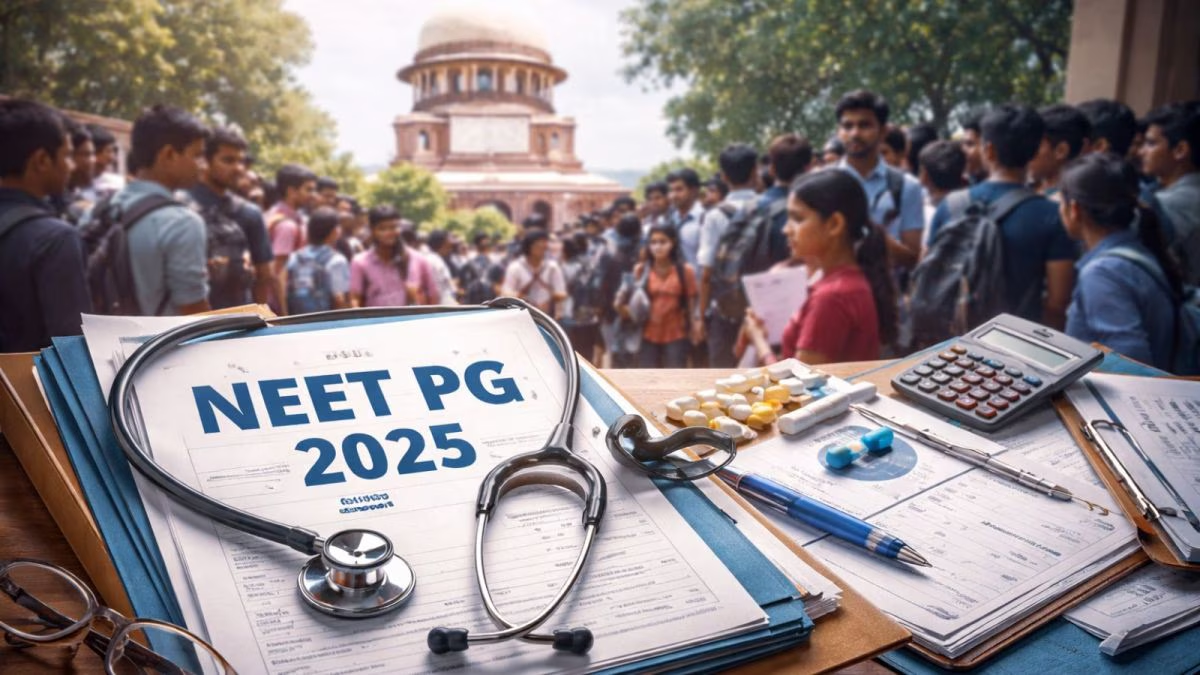

Reduction doesn't affect competence, candidates are licensed MBBS practitioners, the government argues in support of the NEET-PG negative cut-off.
On Monday, the Supreme Court announced that it would investigate the potential impact on postgraduate medical education standards of the significant decline in the qualifying percentile for NEET-PG 2025.Since cut-offs were dropped to zero percentile and negative marks, around one lakh students are now eligible for NEET PG counseling. After the qualifying cut-off was lowered, up to 95,913 more candidates were eligible for NEET PG 2025 counseling, the National Board of Examinations in Medical Sciences (NBEMS) told the Supreme Court of India. Earlier, on February 4, a bench of justices P S Narasimha and Alok Aradhe sent a notice to the Center requesting that it submit an affidavit outlining the rationale for the cut-offs. The examination body documented comprehensive category-by-category data explaining the effects of the updated percentile criteria in its response to the Public Interest Litigation contesting the notice dated January 13, 2026. The body claimed that the modification had significantly increased the number of qualified applicants for the continuing counseling process.
Published 23 Feb 2026 06:01 PM
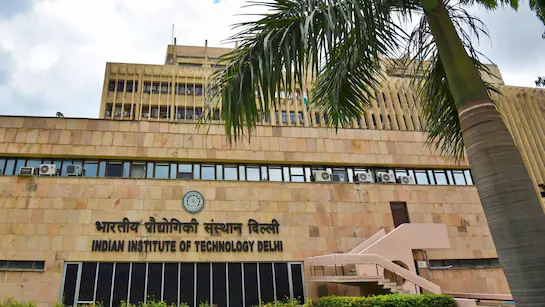

Undergraduate students would be able to study on 23 campuses of IITs.
By allowing the transfer of credits for courses taken at another IIT, the Indian Institutes of Technology intend to enable undergraduate students to study on all 23 campuses across the country. At its August meeting last year, the IIT Council—the institutes' highest coordinating body—made this recommendation. A goal of "5% undergraduate student exchange across IITs, ensuring smooth credit transfer for courses taken at other IITs" was established.Details are being worked out, and each IIT will need to resolve the issue at the Senate level, according to Professor Prathap Haridoss, Dean (Academic Courses), IIT Madras. "There is consensus at the Council level, and we are working on the conditions under which we will enable this. However, in terms of procedure, we are formalising a document that would require the fundamental agreement of all senates. As more senators approve it, we can then begin implementing it. We are still working on the document. "Having a shared document would be better," Prof. Haridoss stated.Prof. Haridoss stated that it is being worked out, even if the Council meeting brought up the topic of 5% of undergraduate students. There will be operational limitations. "If there are more students entering an institution than leaving, the hostel capacity will be a constraint when we enable transfers," he stated."We provide admissions for distinction in the fine arts and culture as well as athletics. If Delhi has excellent coaching facilities, a student who is admitted under the sports excellence program might be able to attend IIT Delhi for one or two semesters, finish their coaching, and then return. We felt the need to allow pupils to move because these avenues weren't there before," he explained.In the past, we exclusively offered summer internships, which ran from May to July. But it was restricting to many. Therefore, we have set up our curriculum so that students only have electives in the sixth semester. Four electives are available. The credit requirements allow students to move those four electives to the prior or subsequent semester, freeing them their whole sixth semester for an internship. They won't have to postpone their electives to a later semester if we allow transfers," he continued.
Published 20 Feb 2026 12:57 PM
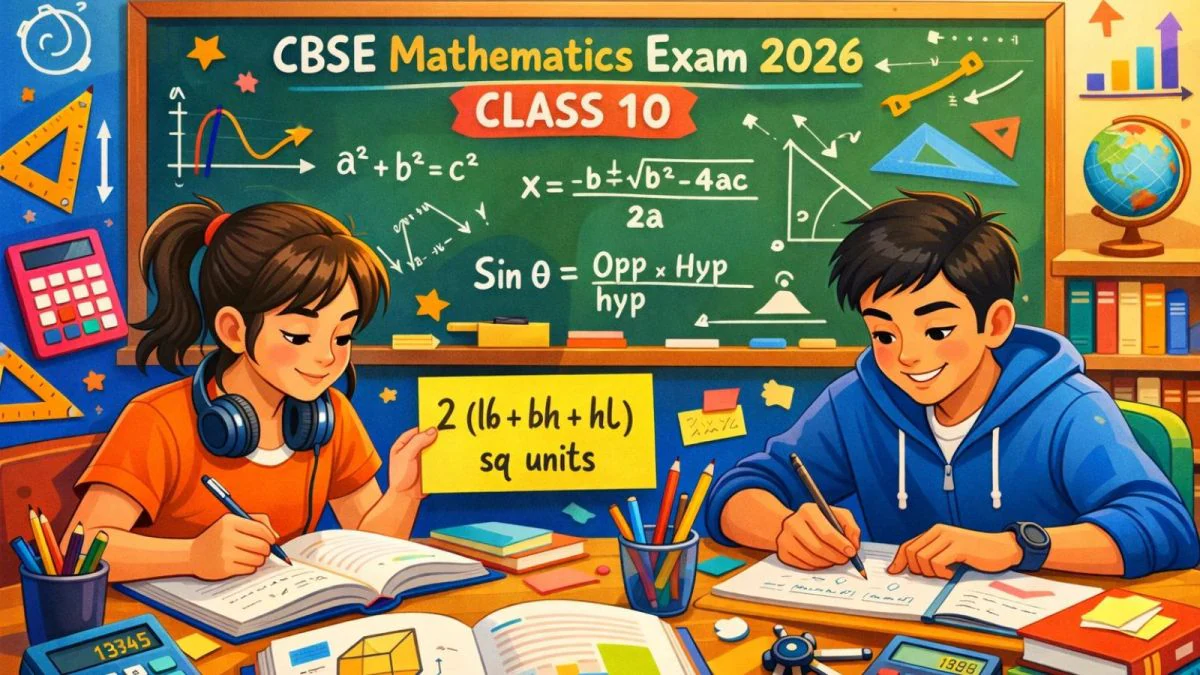

Learn about the most important chapters, last-minute study strategies, and more for the CBSE 2026 board Class 10th Math exam on February 17.
You're relieved that a math test is completed, but you're also aware that doubts begin to surface. "It wasn't hard, but it was tricky," the majority of pupils remark. The catch is that. You often don't lose points in math because you don't know the syllabus. When the CBSE modifies well-known questions or you make minor errors while solving them, you lose them.The best strategy to get ready for the 2026 Class 10 Maths board exam, which is scheduled for February 17, involves more than just endless revision. It all comes down to properly applying and retaining ideas. Consider it this way:You may confidently answer those "tricky" questions if you concentrate on precision and technique.Chapters with a lot of weight to concentrate on Despite having a consistent syllabus, each chapter does not have an equal impact on the final grade. Certain units have continuously shaped the paper's backbone over time: Triangles, circles, trigonometry, coordinate geometry, polynomials, quadratic equations, arithmetic progressions, and statistics. These chapters assess both conceptual knowledge and the capacity to follow logical progressions without losing precision. For example, pupils who understand the relationship between zeroes and coefficients in polynomials lose marks due to rushed substitution.In Arithmetic Progressions, choosing the incorrect formula results from a mix-up between the nth term and the sum of n terms. Identity is memorized in trigonometry, however proofs are unsuccessful because students start from both sides rather than rationally correcting a minor misunderstanding that frequently results in method marks being deducted. What the CBSE repeats in exams is as follows: Questions are rarely repeated verbatim by CBSE. Structures are repeated.
Published 16 Feb 2026 05:45 PM


Two board exams, the end of UGC, and international campuses: India's educational landscape in 2025
The permission of international university campuses and the development of IITs and IIMs abroad were among the significant reforms that India's education sector witnessed in 2025, which accelerated the globalisation of higher education.For India's education system, 2025 was a turning point. Wide-ranging policy changes, technological integration, and a strong push to internationalise Indian higher education through approvals for foreign university campuses in the nation were the main forces behind the changes. The establishment of IIT and IIM campuses overseas was also noteworthy.The Union Cabinet's ratification of the Viksit Bharat Shiksha Adhikshan (VBSA) Bill, 2025, formerly known as the Higher Education Commission of India (HECI) Bill, which aims to replace several regulatory organisations with a single authority, was the most important step, though. Major NEP-driven changes characterise India's educational landscape in 2025: UGC's push for a four-year UG degree model that aligns with global standards, CBSE's introduction of two annual board exams for Class 10 (starting in 2026) to relieve pressure, and the notable expansion of international campuses and online learning all indicate a shift towards flexible, skill-focused, globally benchmarked education, though implementation presents logistical challenges.
Published 31 Dec 2025 11:27 PM


Education
Education is also one of the biggest endustry and there are so many start ups are coming up with unique ideas to help education system and the kids to go to a new level.


Reduction doesn't affect competence, candidates are licensed MBBS practitioners, the government argues in support of the NEET-PG negative cut-off.
On Monday, the Supreme Court announced that it would investigate the potential impact on postgraduate medical education standards of the significant decline in the qualifying percentile for NEET-PG 2025.Since cut-offs were dropped to zero percentile and negative marks, around one lakh students are now eligible for NEET PG counseling. After the qualifying cut-off was lowered, up to 95,913 more candidates were eligible for NEET PG 2025 counseling, the National Board of Examinations in Medical Sciences (NBEMS) told the Supreme Court of India. Earlier, on February 4, a bench of justices P S Narasimha and Alok Aradhe sent a notice to the Center requesting that it submit an affidavit outlining the rationale for the cut-offs. The examination body documented comprehensive category-by-category data explaining the effects of the updated percentile criteria in its response to the Public Interest Litigation contesting the notice dated January 13, 2026. The body claimed that the modification had significantly increased the number of qualified applicants for the continuing counseling process.


Undergraduate students would be able to study on 23 campuses of IITs.
By allowing the transfer of credits for courses taken at another IIT, the Indian Institutes of Technology intend to enable undergraduate students to study on all 23 campuses across the country. At its August meeting last year, the IIT Council—the institutes' highest coordinating body—made this recommendation. A goal of "5% undergraduate student exchange across IITs, ensuring smooth credit transfer for courses taken at other IITs" was established.Details are being worked out, and each IIT will need to resolve the issue at the Senate level, according to Professor Prathap Haridoss, Dean (Academic Courses), IIT Madras. "There is consensus at the Council level, and we are working on the conditions under which we will enable this. However, in terms of procedure, we are formalising a document that would require the fundamental agreement of all senates. As more senators approve it, we can then begin implementing it. We are still working on the document. "Having a shared document would be better," Prof. Haridoss stated.Prof. Haridoss stated that it is being worked out, even if the Council meeting brought up the topic of 5% of undergraduate students. There will be operational limitations. "If there are more students entering an institution than leaving, the hostel capacity will be a constraint when we enable transfers," he stated."We provide admissions for distinction in the fine arts and culture as well as athletics. If Delhi has excellent coaching facilities, a student who is admitted under the sports excellence program might be able to attend IIT Delhi for one or two semesters, finish their coaching, and then return. We felt the need to allow pupils to move because these avenues weren't there before," he explained.In the past, we exclusively offered summer internships, which ran from May to July. But it was restricting to many. Therefore, we have set up our curriculum so that students only have electives in the sixth semester. Four electives are available. The credit requirements allow students to move those four electives to the prior or subsequent semester, freeing them their whole sixth semester for an internship. They won't have to postpone their electives to a later semester if we allow transfers," he continued.


Learn about the most important chapters, last-minute study strategies, and more for the CBSE 2026 board Class 10th Math exam on February 17.
You're relieved that a math test is completed, but you're also aware that doubts begin to surface. "It wasn't hard, but it was tricky," the majority of pupils remark. The catch is that. You often don't lose points in math because you don't know the syllabus. When the CBSE modifies well-known questions or you make minor errors while solving them, you lose them.The best strategy to get ready for the 2026 Class 10 Maths board exam, which is scheduled for February 17, involves more than just endless revision. It all comes down to properly applying and retaining ideas. Consider it this way:You may confidently answer those "tricky" questions if you concentrate on precision and technique.Chapters with a lot of weight to concentrate on Despite having a consistent syllabus, each chapter does not have an equal impact on the final grade. Certain units have continuously shaped the paper's backbone over time: Triangles, circles, trigonometry, coordinate geometry, polynomials, quadratic equations, arithmetic progressions, and statistics. These chapters assess both conceptual knowledge and the capacity to follow logical progressions without losing precision. For example, pupils who understand the relationship between zeroes and coefficients in polynomials lose marks due to rushed substitution.In Arithmetic Progressions, choosing the incorrect formula results from a mix-up between the nth term and the sum of n terms. Identity is memorized in trigonometry, however proofs are unsuccessful because students start from both sides rather than rationally correcting a minor misunderstanding that frequently results in method marks being deducted. What the CBSE repeats in exams is as follows: Questions are rarely repeated verbatim by CBSE. Structures are repeated.


Two board exams, the end of UGC, and international campuses: India's educational landscape in 2025
The permission of international university campuses and the development of IITs and IIMs abroad were among the significant reforms that India's education sector witnessed in 2025, which accelerated the globalisation of higher education.For India's education system, 2025 was a turning point. Wide-ranging policy changes, technological integration, and a strong push to internationalise Indian higher education through approvals for foreign university campuses in the nation were the main forces behind the changes. The establishment of IIT and IIM campuses overseas was also noteworthy.The Union Cabinet's ratification of the Viksit Bharat Shiksha Adhikshan (VBSA) Bill, 2025, formerly known as the Higher Education Commission of India (HECI) Bill, which aims to replace several regulatory organisations with a single authority, was the most important step, though. Major NEP-driven changes characterise India's educational landscape in 2025: UGC's push for a four-year UG degree model that aligns with global standards, CBSE's introduction of two annual board exams for Class 10 (starting in 2026) to relieve pressure, and the notable expansion of international campuses and online learning all indicate a shift towards flexible, skill-focused, globally benchmarked education, though implementation presents logistical challenges.


Knowledge Nugget | Cheetah Translocation: Essential Information for the UPSC Exam
Five African cheetahs are scheduled to arrive in India from Botswana early next year as part of Project Cheetah, and Indian authorities are trying to finalize licenses for their relocation. Let's take a closer look at the Cheetah and Project Cheetah in this perspective. Important Takeaways: 1. During President Droupadi Murmu's state visit in November, Botswana formally announced the relocation of eight cheetahs to India. Eight large cats were symbolically sent by Botswana to India as part of Project Cheetah. 2. With an estimated 1,700–2,000 big cats, Botswana is home to one of the biggest wild cheetah populations. Cheetahs 1. The tawny coats of cheetahs (Acinonyx jubatus) are famous for their black dots, which are arranged in a unique pattern to help identify the animal. 2. Asiatic cheetahs lived in India. The National Tiger Conservation Authority states that the cheetah left India in 1952 after facing numerous challenges. It is now thought that the Asiatic cheetah alone exists in Iran. 3. Cheetah Conservation Status: Asiatic cheetahs are classified as "critically endangered" on the IUCN Red List, while African cheetahs are classified as vulnerable (VU). Schedule 1 for Asiatic and African cheetahs under the Wildlife Protection Act of 1972.
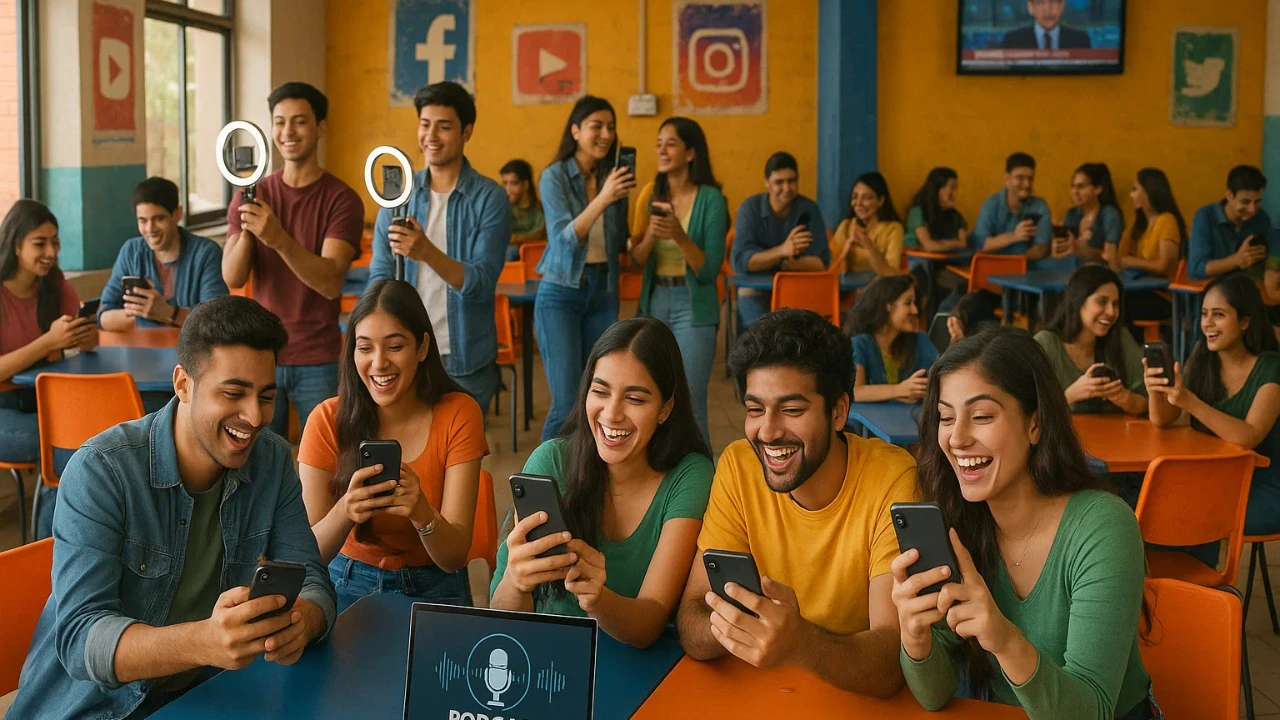

How an Indian Gen Z leader is reinventing design education
Director of the JD Institute of Fashion Technology Rinesh Dalal talks with Adgully about his experience reinventing design education through innovation, entrepreneurship, and creativity. Dalal, who joined the education sector at the age of 18, offers a unique combination of strategic thought and artistic vision to his leadership position. He considers creating experiential learning ecosystems outside of classrooms, from fostering creative communities and supporting emerging talent to extending the JD tradition into digital-first platforms like JDOnline and JD Podcast. Dalal also discusses how technology, narrative, and purpose will continue to influence design education in India.I was never ready to start working at such a young age, much less establish my own business. I had intended to continue my education in film in London, but because my family is very business-oriented, I decided to use that money to start my own company. In retrospect, I can see how much I have developed both myself and inside the company. I joined JD Institute four years ago, and it has been two and a half years since I assumed full leadership. I have acquired extensive practical experience throughout this period, which enables me to firmly continue this tradition. As a member of the same generation as today's youngsters, I am aware of their goals, mindset, and the help they require at various phases of their development.JDOnline was developed to close the accessibility gap by enabling anybody, anywhere, to receive top-notch design education without being constrained by traditional classroom settings. JD Podcast helps students grasp the real-world dynamics of the creative industry by providing them with authentic talks, thoughts, and experiences from artists, entrepreneurs, and industry leaders. This helps close the industry awareness gap.
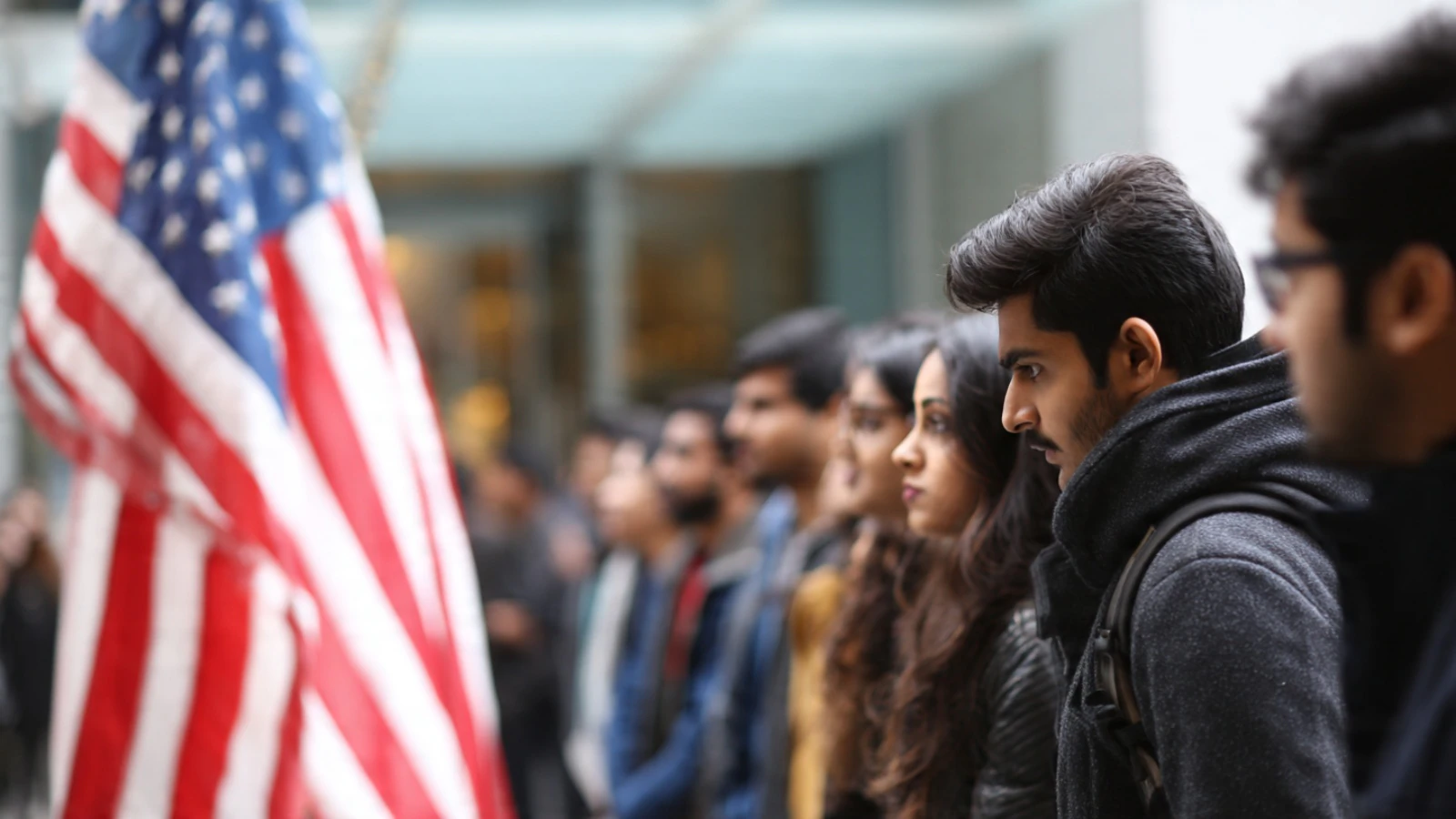

H-1B obstacles and OPT hope: Indian students in the US struggle with evolving visa regulations
Students and professionals are eagerly awaiting President Donald Trump's next step as Indian residents' chances of finding employment abroad have drastically decreased due to the US's restrictive immigration laws. The new regulation has left many people, particularly those who are about to graduate, scurrying to reevaluate their plans and look for alternatives elsewhere in a country that accounts for the biggest number of H-1B visa holders worldwide.Chell Roberts, dean of the University of San Diego, described the announcement as "like a seismic shock." "Students, families, and businesses who have long seen the H-1B as a bridge to opportunity have had their dreams disrupted. "The recent increase in the H-1B cost and the planned changes to the lottery system have made it more difficult for Indian students studying in the United States to obtain a work visa. Notwithstanding these difficulties, the Optional Practical Training (OPT) program is still an essential means of obtaining job experience, even though new regulations may restrict chances in the future. Although some students think that concentrating on developing excellent academic and professional profiles is still the most effective approach, others are worried about employment prospects and career timetables.
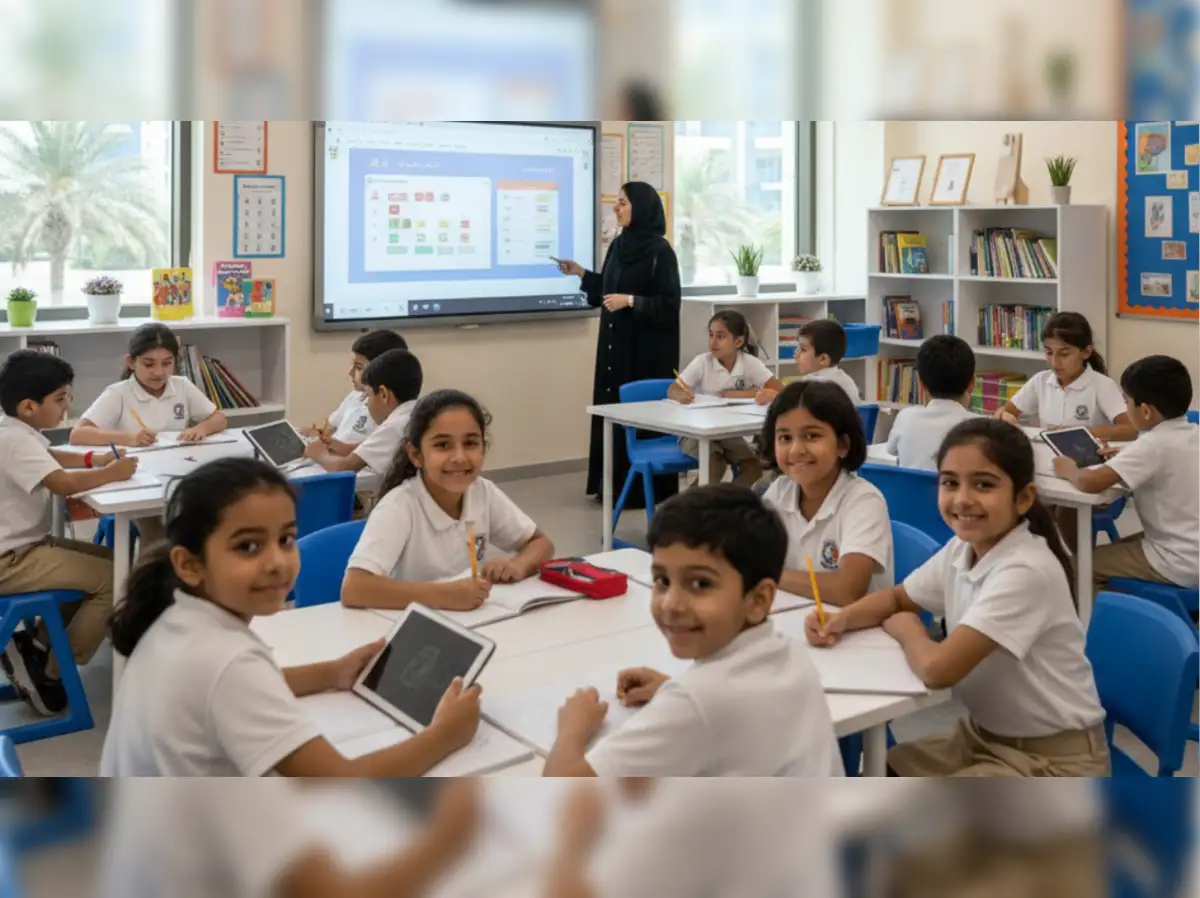

According to MoE data, over 1 lakh single-teacher schools in India educate over 33 lakh children.
According to data from the Ministry of Education, there are over 33 lakh kids enrolled in over one lakh single-teacher schools nationwide, with Andhra Pradesh having the most of these institutions and Uttar Pradesh having the most students enrolled in them. 33,76,769 kids were enrolled in 1,04,125 single-teacher schools in India during the 2024–2025 school year, with an average of roughly 34 pupils per school.Despite efforts to rectify the situation, over 33 lakh Indian pupils are still enrolled in schools with just one teacher, and the roughly one lakh schools where they attend have not hired a teacher to replace their current one. For the academic year 2024–2025, the Union Ministry of Education released data from the Unified District Information System for Education Plus (UDISE+) last week, showing that 1,04,125 schools in India are operated by a single teacher, serving 33,76,769 children. Andhra Pradesh has the most single-teacher schools, followed by Karnataka, Jharkhand, Maharashtra, Uttar Pradesh, and Lakshadweep. Nonetheless, Uttar Pradesh leads the pack in terms of student enrollment in single-teacher schools, followed by Jharkhand, West Bengal, and Madhya Pradesh.Single-teacher schools are still a major problem in India, despite a decline in their numbers from 1,18,190 in 2022–2023 to 1,10,971 in 2023–2024. According to the ministry, "the number of single teacher schools has decreased by approximately 6% in the reporting year compared to the prior year due to the deliberate and significant governmental interventions." According to officials, in order to guarantee "optimal teacher availability," attempts are being made to redistribute teachers from schools with no students enrolled to single-teacher schools.
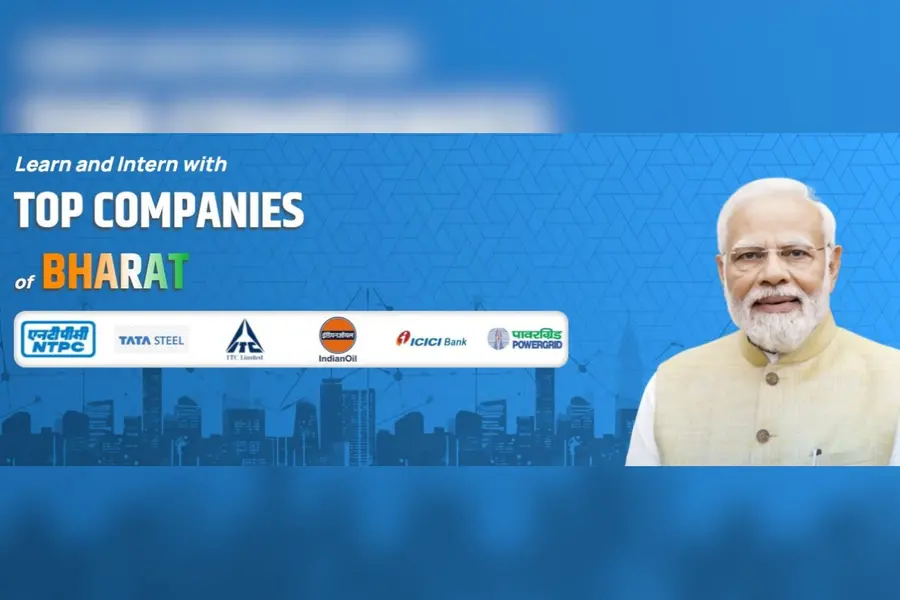

PM Internship Scheme 2025: Which companies can applicants submit their applications to?
Prime Minister’s Internship Scheme 2025: Applications are currently open for the Ministry of Corporate Affairs’ Prime Minister’s Internship Scheme 2025. You can apply for the internship by visiting the official website at pminternship.mca.gov.in. The following is a list of all partner companies that will offer students one-year internship opportunities. PM Internship Scheme 2025: The upcoming PM Internship Scheme 2025 aims to provide numerous opportunities for the youth of India, with the goal of linking theoretical education and hands-on work experience. Initiated by the Indian government, this scheme aims at youth from low-income families aged 21 to 24, offering them 12-month internships in a selection of India’s top 500 companies. This initiative contributes to a broader vision aimed at fostering skill development and improving job prospects for young people in the country.
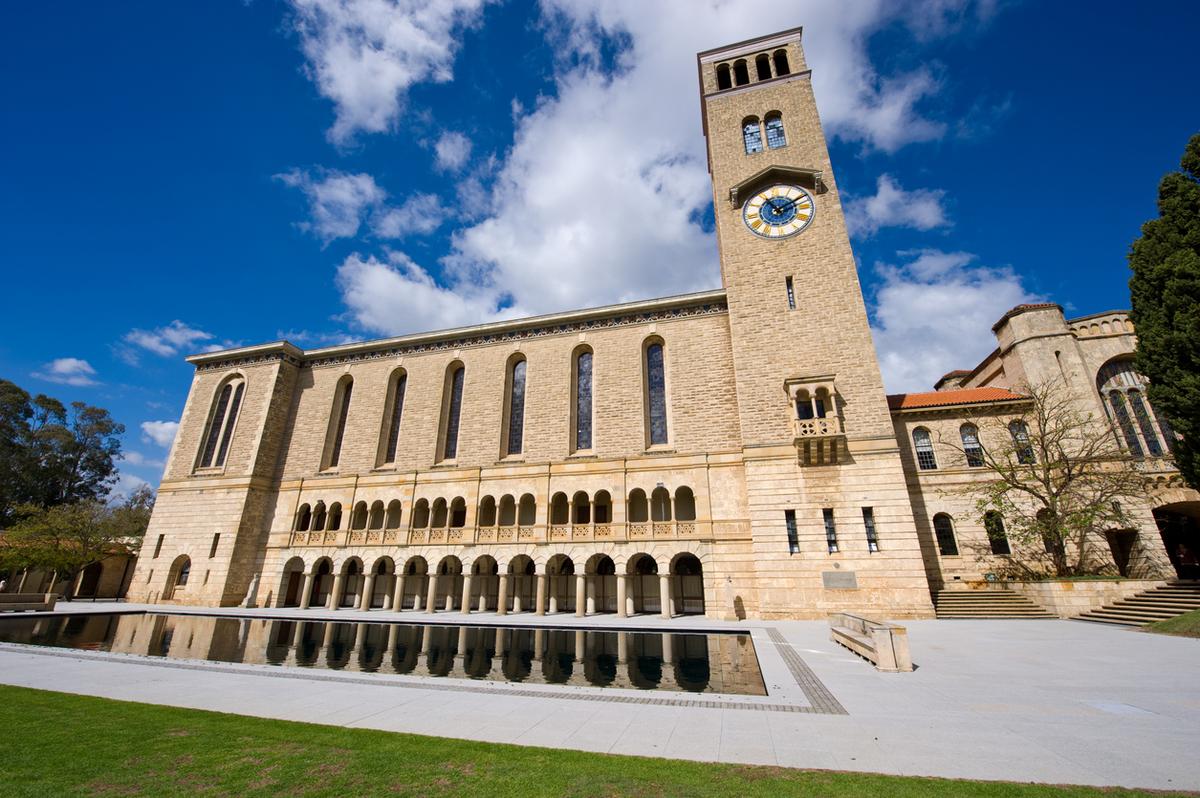

By August 2026, the University of Western Australia's new campuses in Chennai and Mumbai will be open.
According to officials, a high-level delegation from the University of Western Australia is in India to interact with the government and state agencies and establish a network of partnerships with Indian institutions. The university's campuses in Chennai and Mumbai are scheduled to open in August 2026. Chennai and Mumbai will host the University of Western Australia's first international campuses. The University Grants Commission (UGC) has approved the University of Western Australia (UWA), located in Perth, to open several branch campuses throughout India, with Mumbai serving as the center.One of the top 100 universities in the world, UWA, will open a campus in India, becoming the first Australian university from the elite Group of Eight (Go8) to do so and the first Ivy League-equivalent.With more than 371 million individuals between the ages of 15 and 29, India is home to the largest youth population in the world. This generation is digitally native, enterprising, and globally connected, and they are driving innovation and growth. India is converting research into practical effects thanks to one of the most thriving startup ecosystems in the world, according to Guy Littlefair, Deputy Vice-Chancellor (education and student experience), UWA.Through top-notch research, instruction, and industry relationships, UWA's expansion aims to capture this energy, learn from it, and contribute to it. We are placing UWA at the center of the country's future by setting up campuses in Chennai and Mumbai, two of India's centers of innovation and development," Littlefair continued. The institution plans to open two campuses: one in Chennai and one in Mumbai. By 2026, both campuses should be up and running.
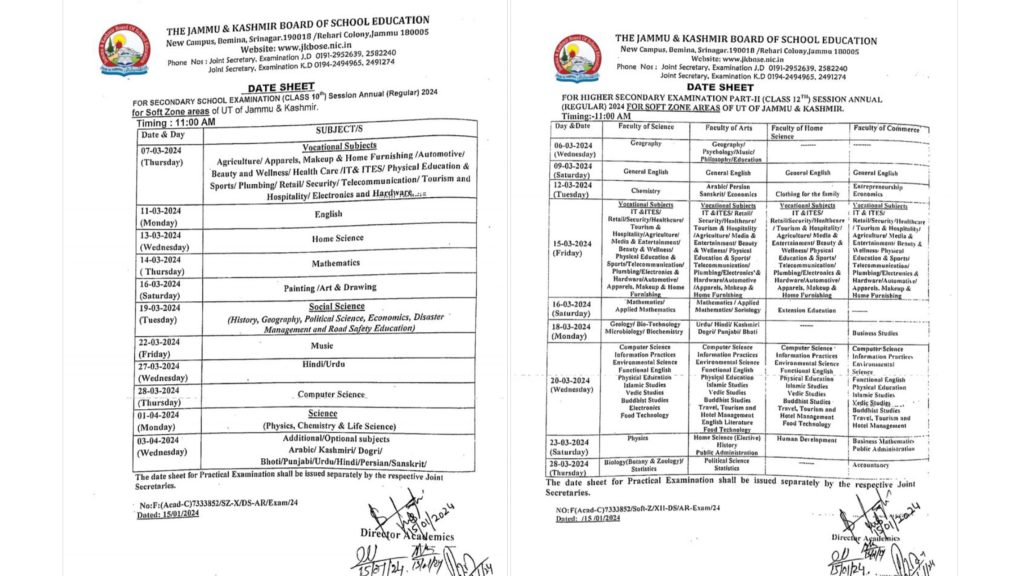

JKBOSE eases the Class 10th and 12th syllabus for annual examinations; date sheet released for SSC
The timetable for the 2025 annual Class 10 examinations has been published by the Jammu and Kashmir Board of School Education (JKBOSE). The exams are planned to take place between November 3 and November 27. The examinations pertain to the October-November 2025 session for the Kashmir province, which includes the Kargil district.The Board announced that the syllabus for the annual examination will be relaxed for students in classes 10, 11, and 12. In a notification issued on October 4, the Board indicated that the relaxation was granted because of the delayed start to the academic session this year and disruptions to the academic calendar resulting from heat waves, heavy rains, and flooding.JKBOSE Syllabus 2025: The Jammu and Kashmir Board of School Education (JKBOSE) has updated the exam syllabus for Class 10 and Class 12 in 2025. The board announced a reduction of the revision in several regions. The examinations are scheduled to take place in the Kashmir province, including the Kargil district, from October to November 2025. The Board indicated that the easing is a result of the postponed beginning of the academic session and the delays inflicted on the academic calendar by the heatwave, heavy rains, and flooding.The official circular stated, “It is hereby notified that prospective eligible students appearing in class 10, 11, and 12 in the upcoming Annual Regular 2025 examination (October-November session) in the Kashmir Division and winter zone areas of Jammu Division, including UT of Ladakh, shall attempt to achieve 85 percent marks which will be considered as 100 percent marks, thus allowing a 15 percent relaxation in the syllabus.”
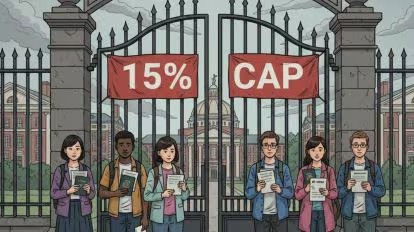

From US Hope to Halt: International students affected by Donald Trump’s 15% enrollment cap
Trump international student cap, Student Visa Exchange Program: According to The Wall Street Journal, a memo from the US government titled 'Compact for Academic Excellence in Higher Education' mandates that no more than 15 percent of undergraduates may be enrolled under the Student Visa Exchange Program and restricts students from any one country to only 5 percent.US Student Visa Exchange Program: In a shocking development, the administration of Donald Trump has issued a severe ultimatum to nine elite universities in the country, demanding that they limit international undergraduate enrollment to 15 percent or forfeit ‘preferential’ federal funding.The US government memo titled ‘Compact for Academic Excellence in Higher Education’ stipulates that the number of undergraduates enrolled under the Student Visa Exchange Program must not exceed 15 percent, with a further restriction limiting students from any one country to only 5 percent, according to The Wall Street Journal.A memo named A Compact for Academic Excellence in Higher Education has been sent by the White House to nine of the nation’s top-tier universities, such as MIT, Dartmouth, and the University of Pennsylvania. This document sets forth guidelines for student admissions, faculty hiring, and campus culture, linking compliance to federal incentives. The memo's core element is a proposal that could transform the future of American higher education: limiting international undergraduate enrollment to 15 percent. Moreover, the nine-page directive restricts the percentage of students from any single country to no more than five percent.
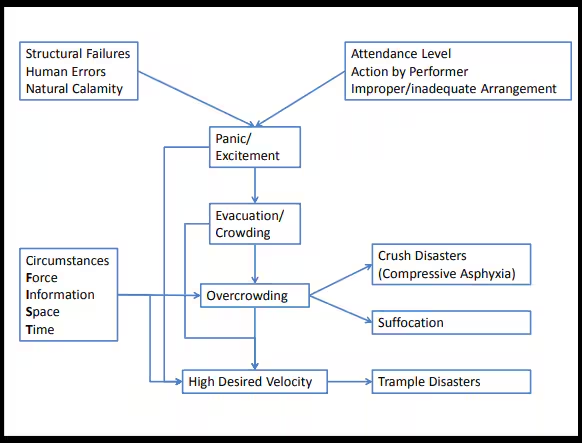

Knowledge Nugget: Stampedes and NDMA Guidelines — Essential information for the UPSC exam
41 people lost their lives in the Karur rally stampede. This was not the first time a stampede resulted in fatalities; similar events had occurred before. So, what exactly is a stampede? What caused it, and what do the NDMA guidelines say about crowd management? This is everything you need to know. Additionally, explore 'Beyond the Nugget' to learn about the reasons stampedes are deadly.Review the crucial events, concepts, terms, quotes, or phenomena daily to refresh your knowledge. Today’s UPSC Current Affairs knowledge nugget is about Stampedes and NDMA Guidelines.A stampede during a rally for actor-politician and Tamilaga Vettri Kazhagam (TVK) leader Vijay in Karur on Saturday (September 27) resulted in 41 deaths, sparking outrage, arrests, and political conflict. Stampedes in India have previously occurred at various locations, including places of worship, sporting events, railway stations, and large gatherings like the Maha Kumbh. Reports indicate that almost 90 individuals have lost their lives in event-related crushes since the start of this year. In this context, we will explore the definition of a stampede, the causes that contribute to them, and the NDMA's crowd management guidelines in India.
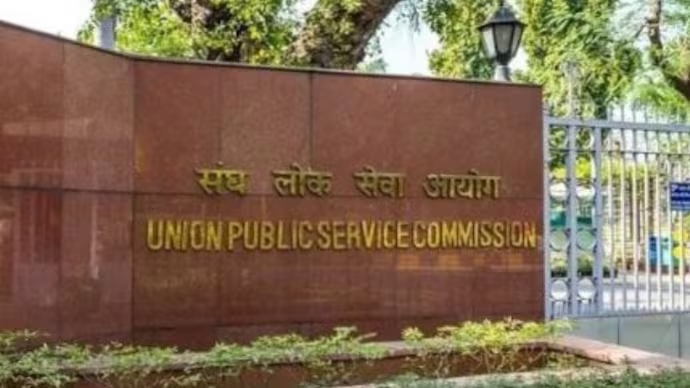

On October 1, the UPSC Chairman will conduct his first live interaction with CSE aspirants.
For the first time, Ajay Kumar, Chairman of the Union Public Service Commission (UPSC), will connect directly with civil service aspirants nationwide via a virtual town hall. An official statement published on Friday indicated that the live interaction will be aired by DD News on its YouTube channel on October 1, from 12 pm to 1 pm.„Ich freue mich, die erste UPSC-Virtual-Town-Hall-Veranstaltung zu organisieren!“ Kumar noted in a LinkedIn post, “Aspirants from all over India can connect with me directly on October 1, 2025, from 12 PM to 1 PM live on the DD News YouTube channel.” For inquiries, please use the email address interactwithupsc@gmail.com. The link to the DD News YouTube channel is lnkd.in/edGZmR5c.As part of the Commission’s centenary year celebrations (2025–26), the initiative was announced through UPSC’s official LinkedIn account. Aspirants and citizens from all over India will have the chance to pose questions and acquire direct insights regarding the examination process, reforms, and innovations at UPSC. It is possible to submit questions beforehand—by emailing interactwithupsc@gmail.com from September 28 until 10 AM on September 30, 2025, using either text or video format. During the live session, participants have the option to post questions on X (Twitter), Facebook, and LinkedIn using the hashtag #AskChairmanUPSC. It also serves to formally kick off the centenary year of UPSC, which commemorates its founding on October 1, 1926, under the provisions of the Government of India Act, 1919. It was originally established as the Public Service Commission, transformed into the Federal Public Service Commission in 1937, and was renamed the Union Public Service Commission with the Constitution's adoption on January 26, 1950. Spanning from October 2025 to October 2026, the centenary celebrations will feature various initiatives, including establishing a Centre of Excellence that will serve as a repository of best practices for UPSC and State Public Service Commissions.
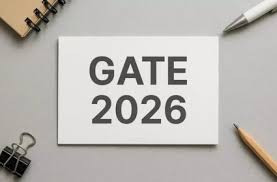

GATE 2026 Registration: IIT Guwahati has extended applications at gate2026.iitg.ac.in
GATE Registration 2026: The registration window for the Graduate Aptitude Test in Engineering (GATE) 2026 has been extended by the Indian Institute of Technology (IIT) Guwahati, and this extension does not incur a late fee. It is essential for those who have not applied for GATE 2026 yet to finalize their application via the official website, gate2026.iitg.ac.in, prior to October 6. To access the portal and submit their forms, applicants must log in with their Enrollment ID and password.The registration date for GATE 2026 has been extended by the Indian Institute of Technology, Guwahati. The registration for the Graduate Aptitude Test in Engineering 2026 has been extended until October 6, 2025. Individuals wishing to submit an application can locate the direct link on IIT GATE’s official website at gate2026.iitg.ac.in.The GATE exam is scheduled for February 7, 8, 14, and 15 in the year 2025. The announcement of the results will take place on March 19, 2025. GATE 2026: Necessary paperwork Documents needed to complete the application form a. Photo of the candidate b. Signature of the candidate c. Scanned version of a valid photo ID (Identity Document) d. Scanned PDF version of the Category (SC/ST) certificate, if applicable e. Scanned PDF of the UDID (preferred) or PwD certificate, if relevant f. Dyslexic certificate scanned in PDF format, if applicable g. Falls zutreffend, relevante Anlagen im PDF-Format
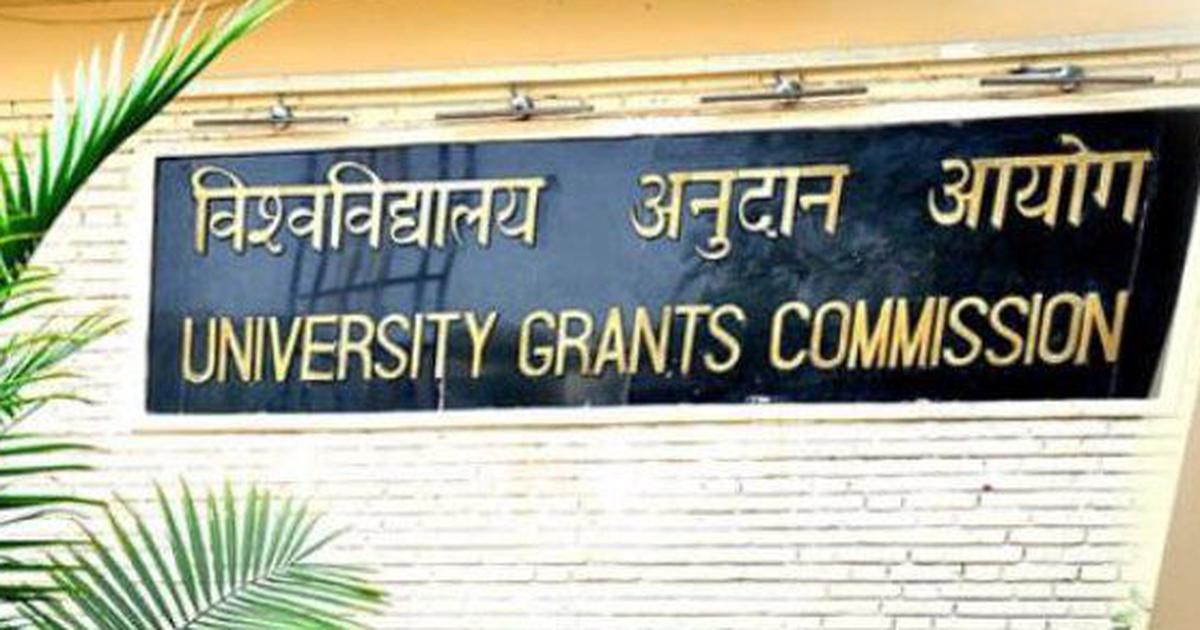

Does not meet intellectual standards; enforces content based on ideology: Kerala government dismisses UGC draft curriculum
A panel set up by the Kerala government, while opposing the draft curriculum issued by the University Grants Commission (UGC) last month, raised concerns about the “imposition of ideologically driven content under the guise of Indian knowledge system,” as well as outdated content and infringements on academic autonomy.This week, the Kerala government announced that it had rejected the draft curriculum and had communicated this decision to the UGC, based on the panel's report submitted earlier this month. Last month, the UGC published the curriculum framework for nine subjects and requested feedback on them. Higher Education Minister R. Bindu stated in a letter to Union Education Minister Dharmendra Pradhan and UGC Chairperson Vineet Joshi that the draft, as it currently stands, would not be implemented in the State. She voiced significant worries regarding the academic, structural, and ideological dimensions of the proposed curriculum.THIRUVANANTHAPURAM: Higher Education Minister R Bindu has stated that the Kerala government will not adopt the draft Learning Outcome-Based Curriculum Framework released by the UGC in its present form. The state government has officially informed the central government and the UGC of its decision to reject the framework.An expert committee was appointed by the state government to assess the framework, and the decision to reject it was made based on the committee’s findings. The minister communicated the state's position through separate letters to Union Education Minister Dr. Dharmendra Pradhan and UGC Chairperson Vineet Joshi. The draft framework for undergraduate courses was recently published by the UGC.The minister indicated in the letters that the UGC's draft framework constitutes a serious infringement on university autonomy. The UGC's constitutional responsibilities do not include the prescribing of syllabi, course structures, and reading lists. An academic and philosophical perspective on the country’s intellectual and social contexts is missing from the document.
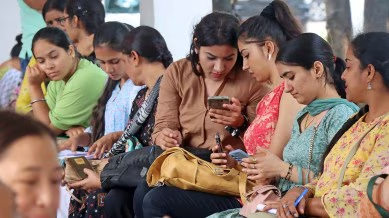

GATE 2026: IIT Guwahati guarantees students a seamless timetable for core papers despite worries about overlap with the UPSC exam
The committee responsible for the Graduate Aptitude Test in Engineering (GATE) 2026 has declared its intention to take measures to avert a clash with the Union Public Service Commission’s (UPSC) Engineering Services Examination (ESE) 2026.The annual calendar published by UPSC indicates that the ESE 2026 preliminary exam is set for February 8, 2026. The organising committee for GATE 2026 at the Indian Institute of Technology Guwahati (IIT Guwahati) has acknowledged the overlap and assured candidates that core engineering papers, including civil engineering (CE), electronics engineering (EC), electrical engineering (EE), geology and geophysics (GG), instrumentation (IN), mechanical engineering (ME), production and industrial (PI), and geomatics engineering (GE), will not be scheduled on that date.


‘Low fees, post-study work opportunities, and a gateway to Europe’: Why Austria is making a significant investment in Indian students in STEM
On Friday, Katharina Wieser, the Austrian Ambassador to India, and Armstrong Pame, Joint Secretary at the Union Ministry of Education, unveiled a new partnership between Austria’s technical universities and VFS Education Services. This initiative is designed to enhance educational ties between India and Austria and broaden opportunities for student mobility.This collaboration unites three renowned Austrian universities: TU Wien, TU Graz, and TU Leoben. This programme targets engineering students from reputable colleges in India, especially those included in the ANABIN database. As per an official announcement, students who qualify will be able to pursue Master’s degrees at these universities. Austria is attracting Indian STEM students by leveraging low (and sometimes free) tuition fees, providing a 12-month post-study work visa, and offering a gateway into the broader European Union. Initiatives like the "Focus India" program, through collaborations with universities like TU Wien and TU Graz, aim to deepen academic and scientific ties by simplifying the admission process for Master's degrees in high-demand fields such as AI, robotics, and biotechnology. Austria's commitment to safety, a high quality of life, and English-taught programs further enhances its appeal.



















